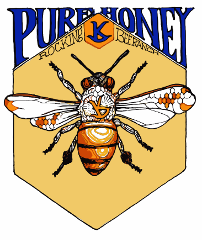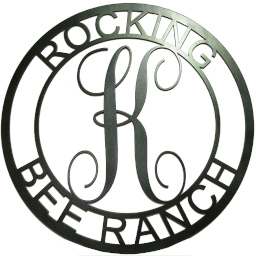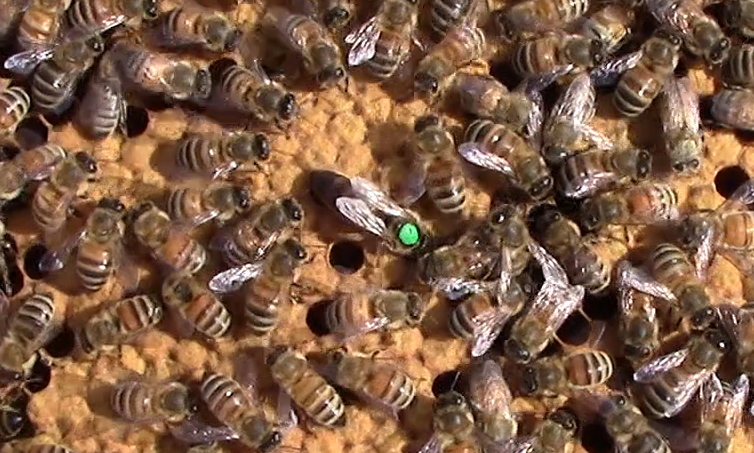
|
Welcome to the Rocking K Bee Ranch! |

NEW! Order our products online at EcoWear.us and aid them in their mission to support small business like ours while also helping to save the planet.
Thank you for visiting The Rocking K Bee Ranch on the World Wide Web. We at the Rocking K are passionate about our bees! We are a small, family-owned beekeeping operation, and have been keeping bees since 2016. We keep bees to both benefit the environment near our home, and of course, we enjoy the products that they make for us!
Please note that while our products are all natural, they are not certified organic. While the management practices of our hives & bees themselves are organic as are our personal gardens & orchard, a honeybee is a wild animal, and goes where she likes. She will be exposed to an assortment of compounds near where our hives are sited, including commercial farms that do not practice organic farming. As such, we cannot guarantee that our products are free of inorganic compounds.

The western honeybee, or the Latin Apis Mellifera (Apis for "bee", Mellifera for "honey-bearing"), is the most common of the 7–12 species of honey bees worldwide. In the United States & Europe, Apis Mellifera is the most commonly kept bee for honey production. There are many different races/hybrids of Apis Mellifera kept in North America. Some of the most common are Italians, Carniolan, Buckfast, Russians, and more recently, Saskatraz.
At the Rocking K, our bees are generally derived from Saskatraz & Carniolan queens. "Derived from" means that when we buy queens from our suppliers, they are those particular races. However, a hive can replace its queen at any time. When that happens, the replacement queen will have the DNA of her certified pure mother, but when she goes on her mating flight, the race of the drones she breeds with could be of any race.
With that said, pure-bred bees from a queen producer breeding with local drones could actually be beneficial! While honeybees can survive in a wide range of environmental circumstances, it's fair to say that our location in northern Wisconsin can be a challenge for bees from warmer climates. So interbreeding with local bees from feral hives may well introduce genetics that will allow them to better cope with the bitter cold we can experience during the frigid winter months.
If you have questions about our bees or beekeeping methods, feel free to reach out, and if you are interested in getting into beekeeping yourself, I strongly urge you to consider signing up for the classes we help teach at Beaver Creek Reserve. You can watch a brief introduction video that might answer some of your questions on our YouTube channel: